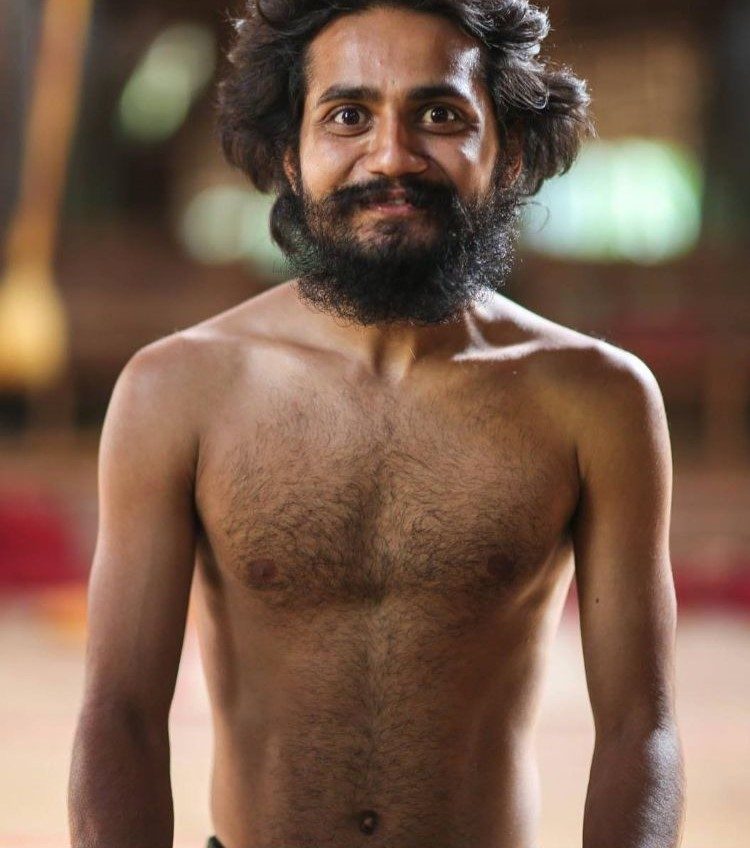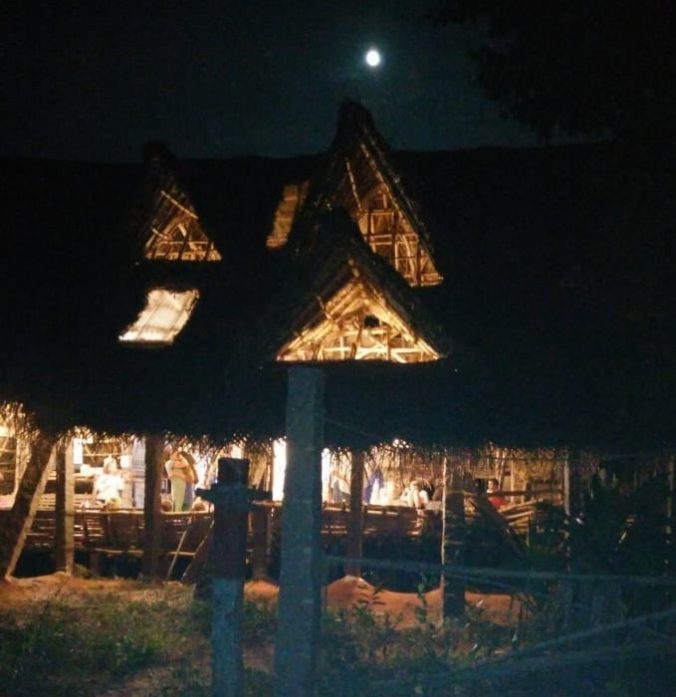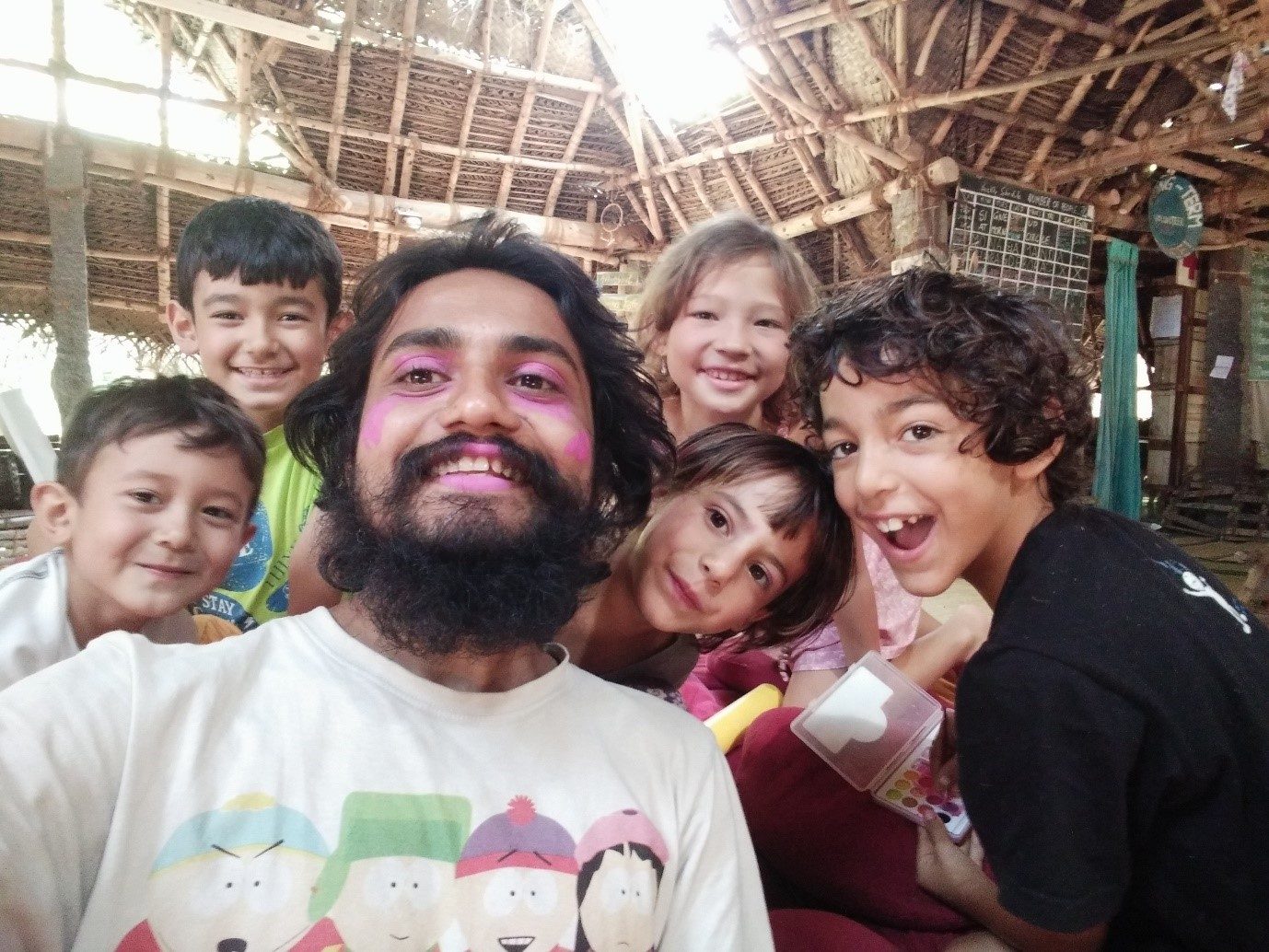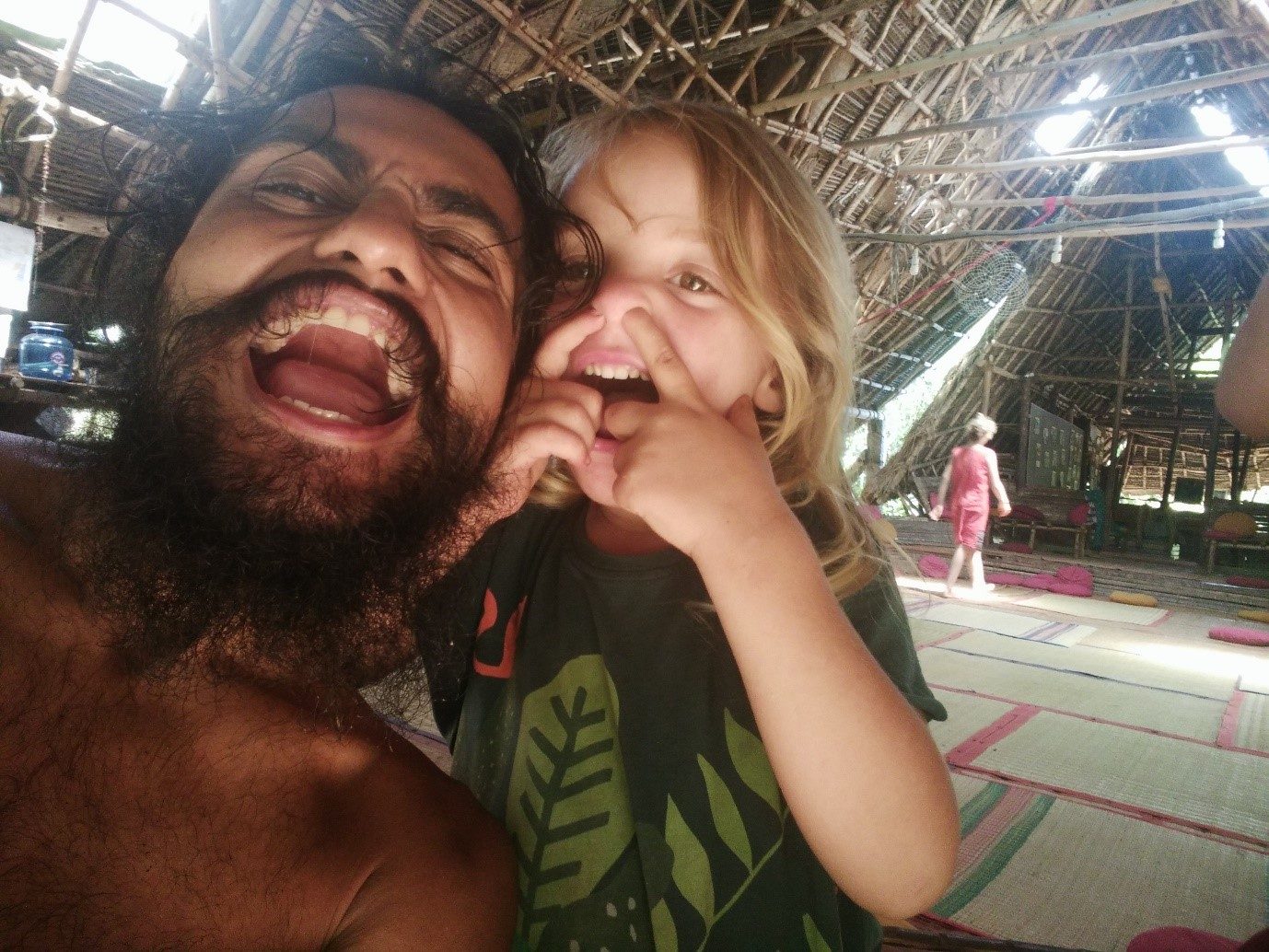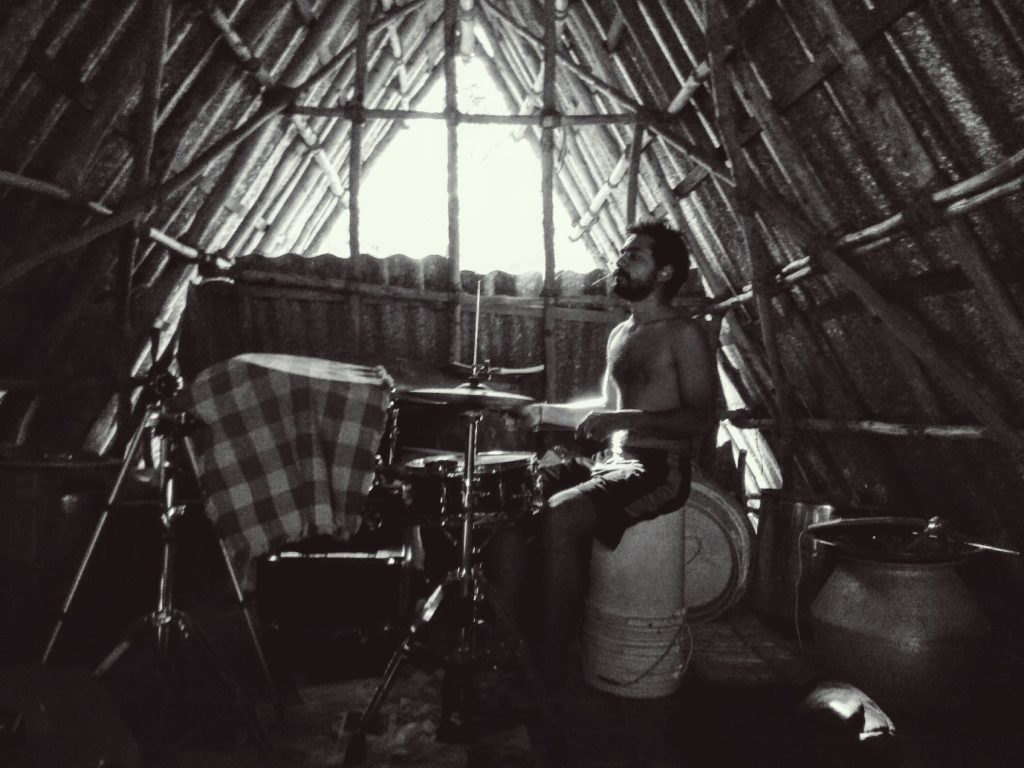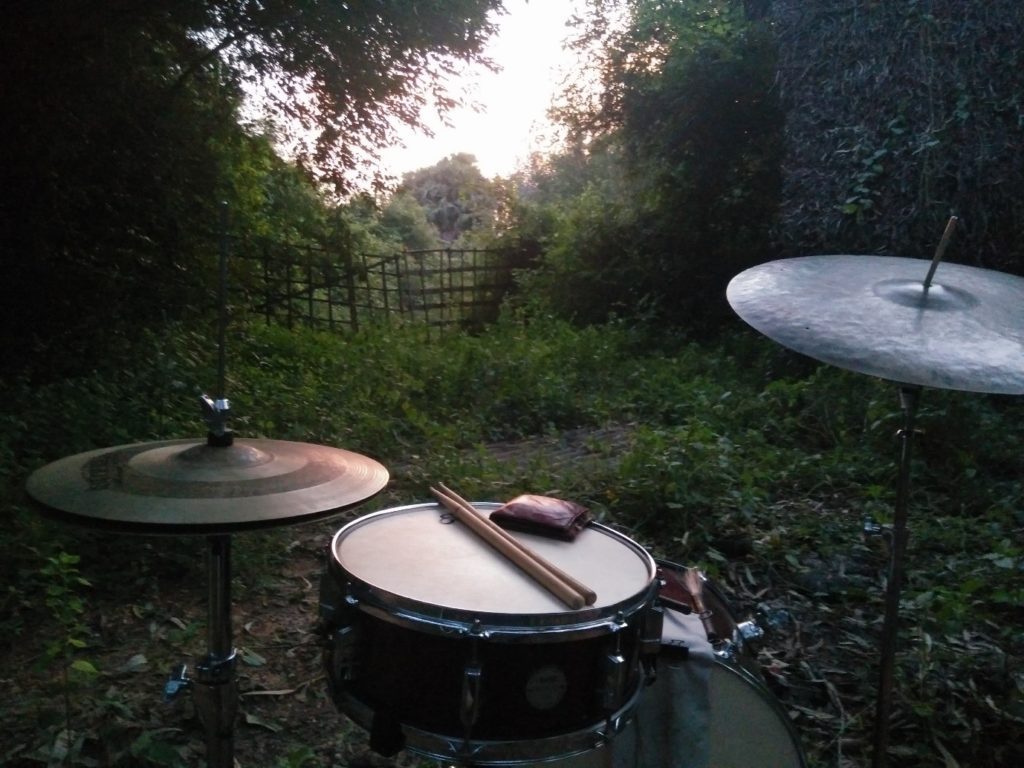Reflections on my 20-month volunteering stint at Sadhana Forest, a reforestation community in Auroville, India
While sitting on the roof of my rented apartment in New Delhi on 31st of December 2015, I couldn’t see a single star in the sky. Fireworks at midnight in celebration of the New Year added to the haze in the sky. I sat there drained of joy. The telescope in my backpack never made it to the tripod. There was no point in pointing it at the sky.
That night, a question that had been looming in my mind for a while made its presence felt stronger than ever before. The question –
‘How about experiencing an alternative lifestyle?’
I could sense the grime of city life settling on the clear crystal of my conscience. The pollution in the city situated on the banks of a biologically dead river, the asphyxiating air, the fast-paced and disconnected life made me feel like a misfit. That night, I found the courage to ask myself a follow up question to the earlier query.
‘What is stopping you from experiencing an alternative lifestyle?’
That question followed me day in and day out, until I knew with deep conviction that I had to act. In six months, after tying up all lose ends, I bid goodbye to the starless skyline of New Delhi and moved under the luminous, star-studded night sky of Auroville.
I arrived at Sadhana forest, a reforestation community in Auroville, with a small backpack and a big carton that housed my drum set. I wasn’t sure how they’d react to a volunteer coming in lock, stock and barrel without any prior communication. But, the warm welcome of a musician in the community took me by a delightful surprise. Within a day, I had an open loft cum storage space where I could keep my drums and practice. With such an open-hearted acceptance, I already felt a part of the volunteering community.
Sadhana forest was started with the intention of creating a place where families could come, stay, plant trees and live a life close to nature. Spread across 70 acres, the forest used to be dry wasteland until a couple of decades ago. The founder family – Aviram, Yorin and their daughter Osher, had successfully harnessed the goodwill of like-minded people, travelers, and volunteers, to turn the lunar landscape into a thriving forest. The community has a set of profound core values that it lives by –
Seva (selfless service), Conscious Living, Non-violence (Ahimsa), Non-competition, Un-schooling (child-led learning), Veganism are the pillars of the community’s philosophy.
The community attracted volunteers from all around the world and on average there would be 50 active community members in the dynamic community.
While I had come here to experience an alternative lifestyle for 2 months, I felt such an affinity for this community that I ended up living there for 20 odd months!
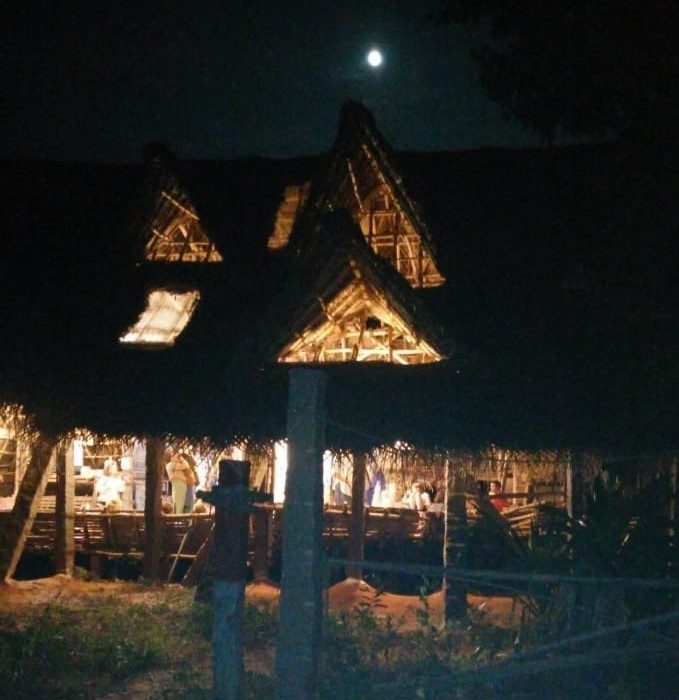
The way of life here was different from anything that I’d experienced before. The morning would begin with someone going around the community playing music to gently wake the community up. By 6 a.m. we’d all meet, pick up our tools and head to the forest to do our seva. We could be planting, watering, mulching, de-weeding, and preparing saplings with total strangers. And by the end of the two hour shift, having worked in the warmth of the early morning sun, there would be no strangers left in the group. We’d work another shift after a nutritious meal, and work until noon.
The physical nature of work was a welcome change for many of the volunteers.
We’d all smell of the earth by the end of our two sevas. And, we’d all be smiling. That’s the beauty of working with the hands.
The conscious, sustainable lifestyle at the community presented an alternative way of thinking to most of us city bred folks. The simple act of needing to pump your own water out of a shallow aquifer using a hand pump made one conscious about the energy needed to move water around. And if one was tempted to fill their bucket all the way up for a shower, they’d only find it impossible to lug the 20 kg bucket 50 meters away to the bathing area without spilling half the water. Soon, they’d realize that half a bucket of water is enough for a good bath!
The average water usage per person at the community is merely 25-30 liters a day, a fifth of the water used by a city dweller in India. The community is entirely solar powered. The well ventilated huts and open-design gathering spaces were always pleasant to sit in, even in the hot summer months. The construction was done by natural materials (locally available wood and granite slabs) in the traditional manner.
Composting was practiced to the extent imaginable. Food scraps and leftovers were composted daily. All of the compost used for plantation came from Humanure (composted human waste) generated after exothermic decomposition by microbes. I found this process fascinating. On looking at the dark, rich compost, I could hardly believe that it used to be human waste at some point. By maintaining a good carbon-nitrogen ratio (by adding sawdust over the waste) and providing ideal conditions for microbes to thrive, we could make high quality compost right within the community. As fascinated I was by this miraculous metamorphosis, I eagerly read a book about the topic called ‘The Humanure Handbook’ from cover to cover.
When after my two month stay, I told the team that I wished to stay back as a long term-volunteer, they’d already guessed what role I’d would fit in best. I was given the responsibility of managing the toilets and compost. My fancy job title was – Toilet Manager.
It might seem repulsive to you, but this was a job that I loved dearly. In a way, by managing the compost, I was helping little sapling get nutrition in the early days of their life in the forest. And considering the scale of operations at the forest and the size of the community, we made a mountain of compost in a year.
Look at the picture below to get an idea! (Rich compost under the tarpaulin!)
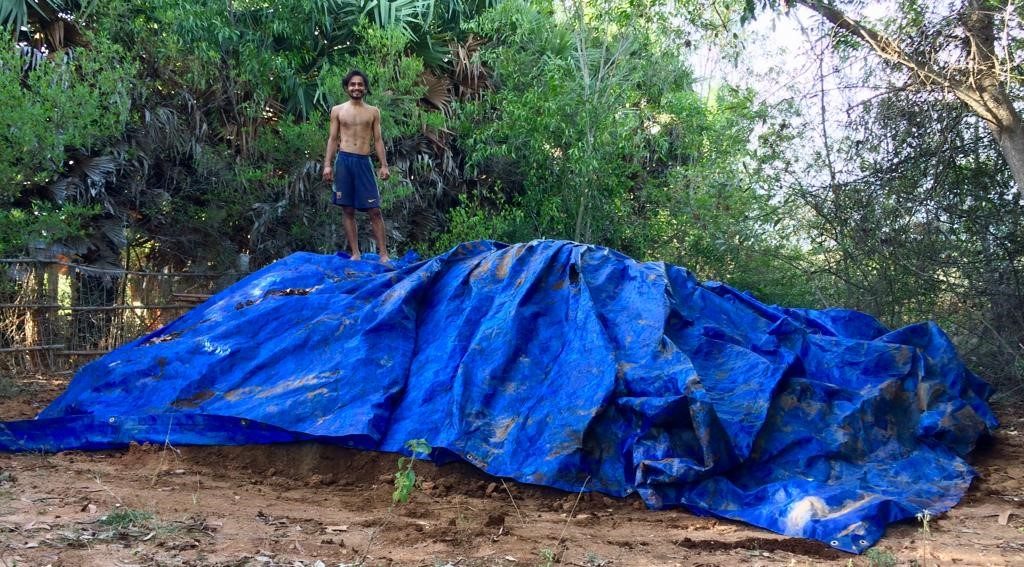
In the community, everyone was encouraged to take up responsibility as they felt ready. Before I knew, I was cooking meals for the whole community thrice a week. During my stay at the community, I’ve been the head chef for a dinner served to over 300 visitors of our forest.
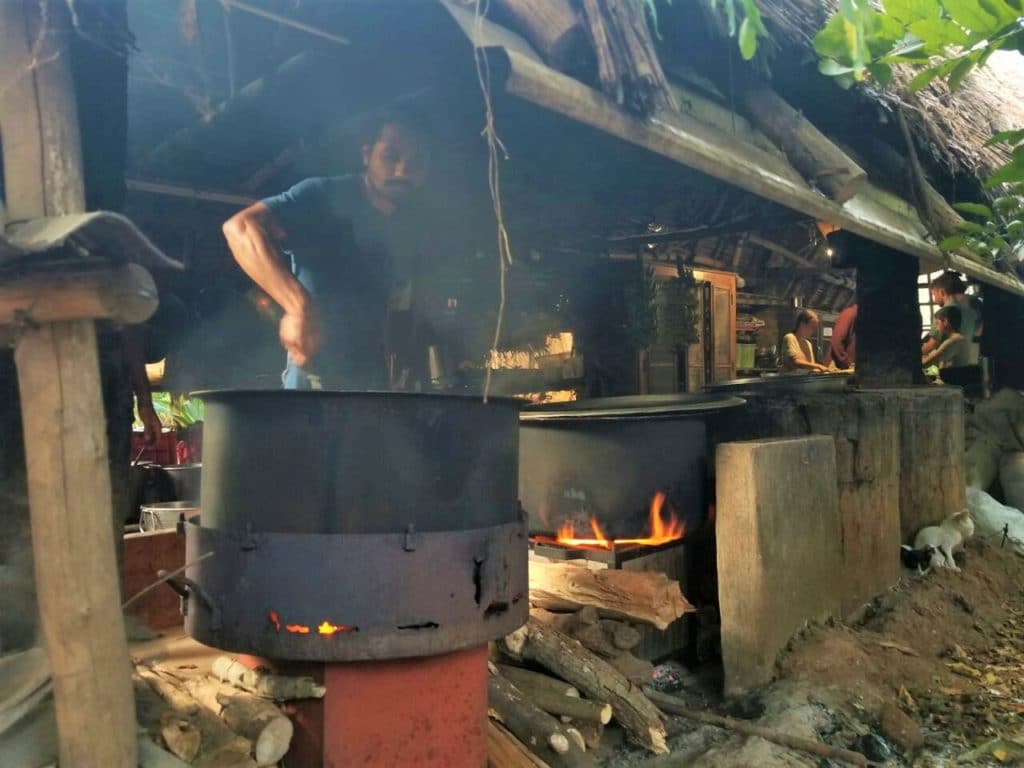
Cooking on a rocket stove!
A balanced, plant-based meal, cooked on firewood-fueled rocket stoves for such a huge gathering! Never had I imagined I was capable of that. But I kept growing slowly, with a firm resolution, just like the young trees in the forest.
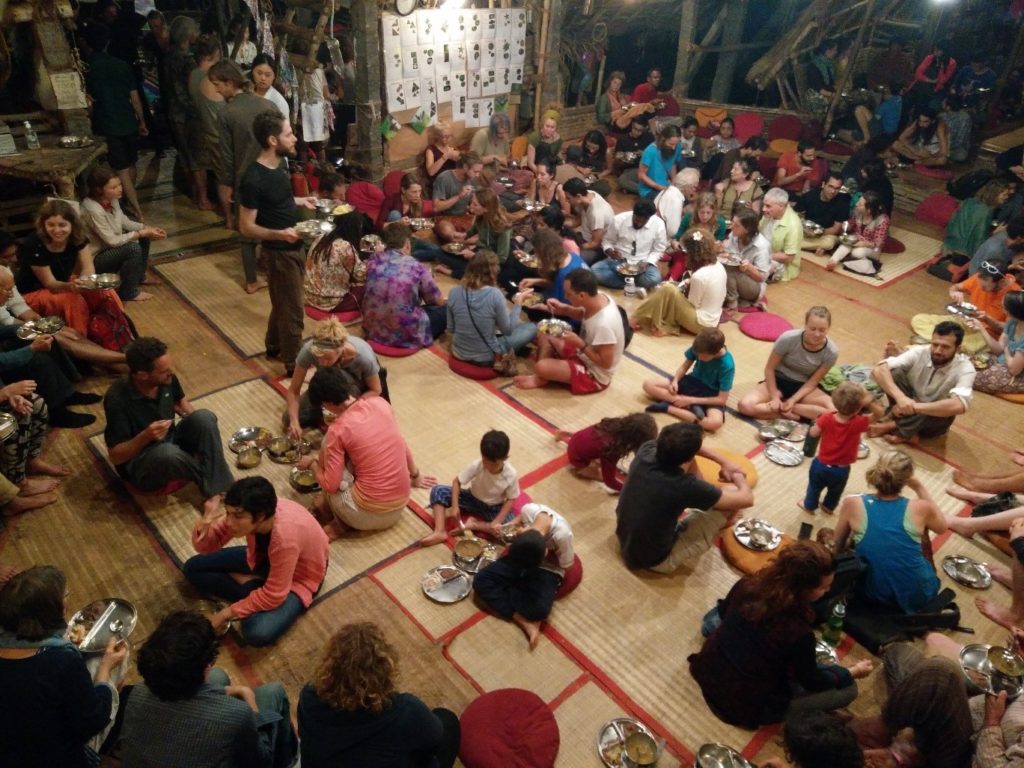
The demographic diversity at the community presented a wonderful opportunity to be kind, open and accepting towards everyone. I remember an announcement at meal time one day when the project director announced that among us we had people from 32 different nations, the youngest member being 4 years old, and the eldest being 61. Imagine working in such a work environment.
The presence of kids in the community kept the place lively all throughout the day. Kids were allowed to play and choose what they wanted to learn. The concept of un-schooling is founded on the belief in the natural ability of a child to grasp things from the surroundings and the innate curiosity present in every young mind. I’d often have children cook along with me. They’d help with lighting a fire, pumping water, running the bicycle blender, cutting vegetables, and learn about these crucial life skills first-hand. It was a joy to be a part of this process of discovery and I made many little friends in my time at the forest.
Once I was done with the day’s work, I would find time to practice playing the drums. Having played drums in a closed practice room all my life, the experience of drumming in the open was a welcome change. The sounds of nature, the chirrup of birds, the sway of the breeze, became part of the soundscape, and to this day, I feel influenced by nature in my approach towards making music.
I was fortunate to find like-minded musicians in Auroville during my stay. We recorded a Jazz album in May 2017, which you can listen to here. I also got to perform at Madras Jazz Festival 2017 and the Auroville 50th anniversary concert apart from the many other self-organized events that we put together in the township. It was here that I learned the joy in making music for the sake of making music, ars gratia artis, as they say. I wasn’t a professional musician any more, but I could realize the role music played in my life, and that has helped me stay a musician at heart. That’s the reason I still pursue music with complete dedication.
My stay at the forest helped me believe in the strength of community, the power of solidarity, the case for sustainable living, the beauty of the human experience, the pressing need for kindness and compassion in our world and the embracing nature of Mother Earth.
If there’s one thing I’d suggest a young and curious mind to experience, it would be the experience of volunteering. It humbles you. It helps you see things in a different light, and opens up your mind to myriad possibilities.
The hundreds of friends I volunteered with helped me gain a balanced perspective about the world we live in, and made me believe in our ability to look beyond our differences and devote our collective energy to a noble cause. They encouraged me to set out on the road and seek the gift of learning that travel promises. After many such suggestions, I finally did begin to travel on my bicycle all around South Asia. That transformative journey wouldn’t have been possible without my experience at the forest.
It’s been a while since I left the forest, but the saplings it planted in my heart are thriving each day with a love that’s deep and divine.
